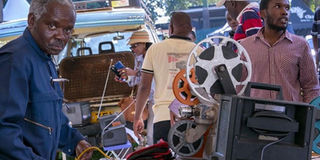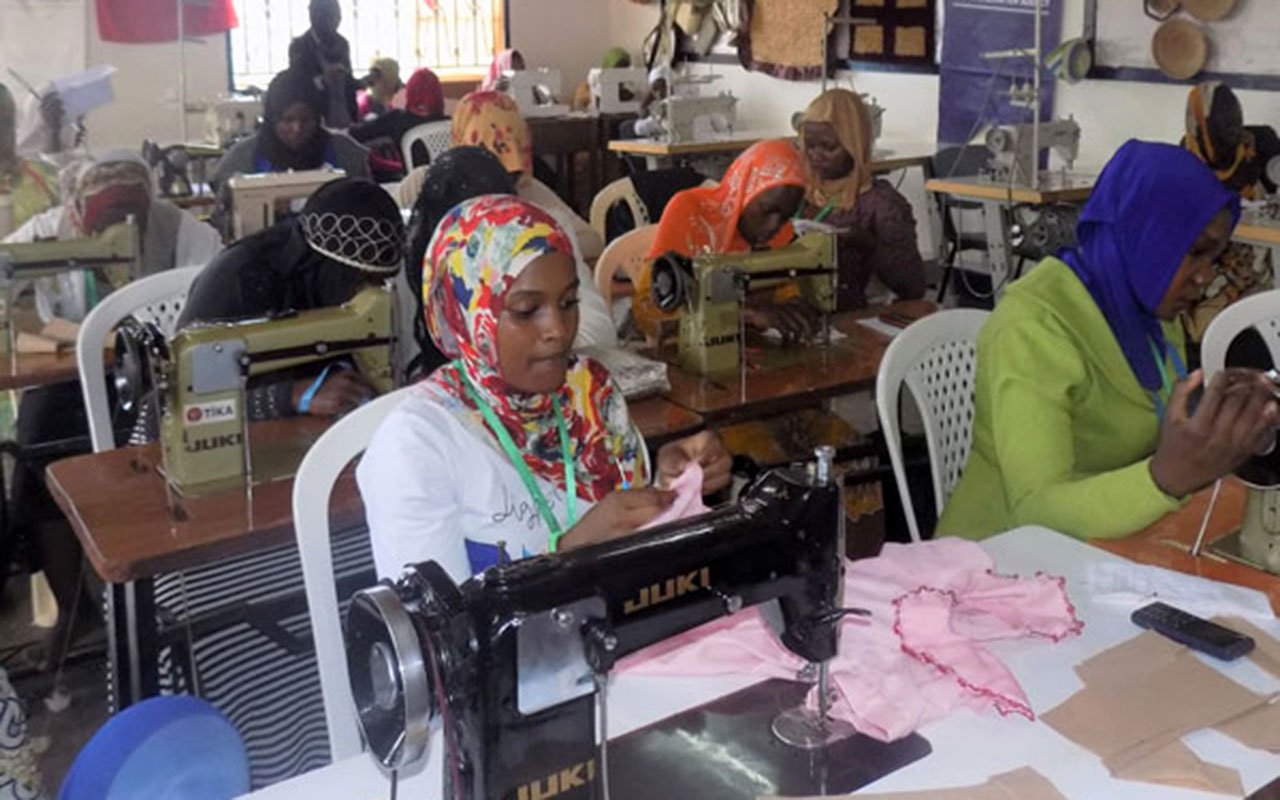Prime
Owana documenting history through antiques

Owana displays some of his collections which he says will help him maintain history, especially when he starts a museum soon. Courtesy Photo
What you need to know:
- Because he loves history and would like to see it maintained, Tony Owana, a journalist, has over the years looked out for unique antique pieces and bought them. He says the collection will soon be displayed in a museum to benefit others
The 1970s are still rated by our parents as the best years. They may have lived through unstable economic systems and all the political unrest but apparently, the social circuit was booming.
Before Bebe Cool or Chameleone declared themselves number one, the country danced to music by the likes of Elly Wamala, Jimmy Katumba, Diplock Ssegawa and the Afrigo Band.
They were creative, edgy and in more than one way, their hairstyles or clothing was a mirror for what was in vogue at the moment.
As videos from the era suggest, miniskirts, high heeled shoes, Afros were trendy for women, while neon-coloured bell bottom trousers, silky shirts, scarves and those three piece suits were men’s. But it was never about clothes only. The accessories too did matter, the fancy media player, newspaper or a chain.
A man of his collection
Tony Owana lived through such memories. You have probably seen his face on one of the TV stations commenting on current affairs. This is mostly because Owana or Owanapedia, as some people choose to refer to him, has been a journalist for almost 30 years; written for newspapers and worked on both radio and TV.
“I have collected many newspaper copies over the years. For instance, I still have the very first copy of the Monitor, now Daily Monitor,” he says.
But it is not just newspapers that Owana has collected over the years. Since he has been around the changing media society, he has collected cassettes of older music, walkmans, mobile phones and radios, among other things.
In fact, even when he shows up for this interview, he comes with a Sony Walkman, fully installed with headphones of the same brand; the portable media players are said to have been invented in the 1970s and Owana says then, men used them to win over women’s hearts. Owana notes that it was only after the walkman was invented that music became personal, before that, all one could do was play a cassette on the home radio.
But of course, it became personal at a cost that only those from rich families ended up with walkmans; and even the music they listened to, much of it was from Britain and America’s Top 100. “Ugandans were recording but not as much,” he says adding that much of the recording of music for Ugandan artistes used to take place in Nairobi.
Why collect antiques
Owana loves his music, he says he has a number of cassettes he has bought to use in his walkman. But of course, that is not the biggest musical antique he has collected. At the moment, his biggest musical collection is the gramophone.
He notes that like many of the things he has collected, many Ugandans could have had these items while growing up, but during the turbulent years, things simply disappeared.
His gramophone, his Master’s Voice, is highly regarded to be an improvement of the earlier invented phonograph, the brand was produced in the 1880s.
“It would play music from the vinyl with the help of a needle,” he says.
A record or a vinyl usually had about 40 minutes per side but not many Ugandans had what it took to record 80 minutes of two sides of a vinyl. He says he collects these things because as a journalist, he is still curious and inquisitive.
Why he collects
But he also says that some of these things help him understand the journey better, for instance, as a journalist, his projector, Bell & Howell, he says, was famous at the time people were moving to incorporate sound in films after years of producing silent films.
While the Silver Reed typewriter he says was almost what a laptop is to modern journalists; “a freelance reporter could do their stories in a bar since the typewriter was easy to carry around.”
But not many journalists had lots of money and so did the media houses. For instance, he says, by 1986, a leading publication such as Ngabo only owned about 10 typewriters.
How he started
Owana says he bought the Silver Reed a few years back in Wandegeya at Shs400,000 from someone who was planning to get rid of it.
“Most of the people selling these things found them within their family circles,” he says. And almost his entire collection narrowly survived the dustbin; the walkman for instance was going to be thrown away by a friend in 2008 when he asked for it.
For the gramophone, an elderly woman reached out to him seeking his help to find a buyer worried that her children would throw it away.”
Rejected progress
When these relics were in vogue, Owana says not all people embraced them. He says it was true some people were indeed poor to afford them, while others were simply not exposed.Owana’s father, he says, had bought the gramophone while returning from the second World War. The soldiers would win themselves a title, Aba Seveni, but since they came back with a lot of gadgets such as guitars, radios, gramophones and others, they dumped them in an economy that was yet to understand what these gadgets were meant to do. Failure to understand their sophistication won them yet another name, Aba Seveni abe byuma. Owana says he keeps antiques in a bid to exhibit them to the future generation.
Future plans
Owana plans to set up a museum of antiques, but even when he is still looking for funds to establish and eventually curate his own museum, at the moment he is more than happy to have his collection exhibited to different crowds.
He notes that he will be carrying part of the collection to the forthcoming Vintage and Classic Auto Show that is set for this month.
Benefits of collecting
Besides Tony Owana’s desire to start a museum of equipment as old or even older than him, he says collecting antiques is about love.
But even with all the love invested, antiques can still make their owners some good money. For instance, when the Last King of Scotland was being filmed in Uganda, it is said vintage cars, telephones and office items were hired.
With good connections, people rent their antiques to production houses or theatre makers that are as far as South Africa.



